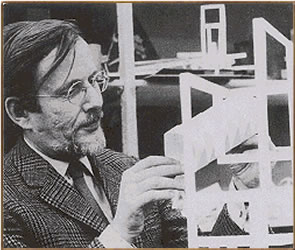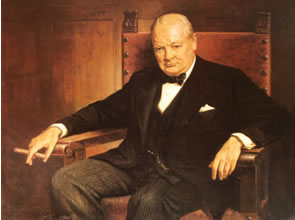Dolce far niente

Juin en Languedoc door Michel Vézinet, z.j.
A Summer Day
I
The dawn laughs out on orient hills
And dances with the diamond rills;
The ambrosial wind but faintly stirs
The silken, beaded gossamers;
In the wide valleys, lone and fair,
Lyrics are piped from limpid air,
And, far above, the pine trees free
Voice ancient lore of sky and sea.
Come, let us fill our hearts straightway
With hope and courage of the day.
II
Noon, hiving sweets of sun and flower,
Has fallen on dreams in wayside bower,
Where bees hold honeyed fellowship
With the ripe blossom of her lip;
All silent are her poppied vales
And all her long Arcadian dales,
Where idleness is gathered up
A magic draught in summer’s cup.
Come, let us give ourselves to dreams
By lisping margins of her streams.
III
Adown the golden sunset way
The evening comes in wimple gray;
By burnished shore and silver lake
Cool winds of ministration wake;
O’er occidental meadows far
There shines the light of moon and star,
And sweet, low-tinkling music rings
About the lips of haunted springs.
In quietude of earth and air
‘Tis meet we yield our souls to prayer.

Lucy Maud Montgomery (30 november 1874 – 24 april 1942)
De haven van New London (vroeger Clifton), Prince Edward Island, de geboorteplaats van de dichteres
De Nederlandse dichter, schrijver, vertaler en uitgever Maarten Asscher werd geboren op 29 juni 1957 in Alkmaar. Zie ook alle tags voor Maarten Asscher op dit blog.
Uit: Het onrustige graf van Oscar Wilde
“Toen Robert Ross op donderdag 29 november om 10.20 vanuit het zuiden in Parijs aankwam, gealarmeerd door een telegram van Reginald Turner met de tekst ‘Almost hopeless’, en hij met eigen ogen had gezien hoe hopeloos Wildes ziekbed inderdaad was, besloot hij op zoek te gaan naar een priester die de stervende dichter in extremis zou kunnen bijstaan. Dat had er niet alleen mee te maken dat Ross, net als Turner trouwens, van huis uit zelf rooms-katholiek was, het was in de eerste plaats een logisch uitvloeisel van Oscar Wildes eigen, levenslange fascinatie voor de Kerk van Rome. Hoewel hij in zijn ontvankelijke jaren evenzeer dweepte met de Griekse mythologie en haar pantheïstische rijkdom, ofschoon hij in 1876 toetrad tot de vrijmetselarij, en zijn jaren van sybaritisch esthetendom op het eerste gezicht slechts een zeer wereldlijke indruk maken, is het rooms-katholicisme als ‘de grootste en meest romantische godsdienst’ een telkens terugkerend geestelijk ideaal voor hem geweest. Na zijn vrijlating uit de gevangenis van Reading in 1897 was het zijn eerste aandrang om in het klooster te treden, maar het antwoord dat hij per omgaande van de jezuïeten op Farm Street in Londen ontving, namelijk dat hij daar eerst een jaar over moest nadenken, moet hem – impulsief als hij was – niet alleen als teleurstellend maar ook als onrealistisch hebben getroffen. Dat veranderde evenwel niets aan zijn voornemen om zich ooit tot het Roomse geloof te bekeren, en bij gelegenheid van zijn laatste bezoek aan Rome, in het voorjaar van 1900, zocht hij zo vaak de pauselijke zegen te verkrijgen, als wilde hij zich daarmee opladen voor zijn vaste voornemen om naar de katholieke Kerk over te gaan. In elk geval, zo had hij reeds jaren tevoren gezegd, is het rooms-katholicisme de enige godsdienst om in te sterven.
Robert Ross had dus groot gelijk toen hij die donderdagmiddag 29 november op zoek ging naar een priester. Maar dat was niet zo eenvoudig, want het moest wel iemand zijn die Engels sprak. Om vier uur ’s middags vond hij de toen eenendertigjarige Ierse Broeder van het Heilig Kruis Father Cuthbert Dunne, verbonden aan de Engelse R.K. Kerk van Saint-Joseph op de Avenue Hoche nr. 50, bereid om hem onmiddellijk te vergezellen, terug naar de rue des Beaux-Arts.”
Op grond van zijn priesterlijke waardigheid heeft Father Dunne bijna een halve eeuw lang geweigerd om te reageren op de speculaties en verdachtmakingen die het sterfbed en de bekering van Oscar Wilde bleven omringen. Een van de telkens opgeworpen vragen was of Wilde wel voldoende bij kennis is geweest om de hem toegediende riten geldigheid te verlenen. Maar Father Dunne bewaarde een categorisch zwijgen, tot hij in de jaren veertig opnieuw een nogal malicieus artikel las, waarin aan de bekering werd getwijfeld met een beroep op de Wilde-biografie van de aarts-fantast, journalist en amateur-Casanova Frank Harris, die zich trouwens zelf indertijd verre van Wildes sterfbed had gehouden.”

Maarten Asscher (Alkmaar, 29 juni 1957)
Het graf van Oscar Wilde op Père-Lachaise in Parijs
De Duitse dichter en schrijver Ror Wolf (pseudoniem van Raoul Tranchirer) werd geboren op 29 juni 1932 in Saalfeld/Saale. Zie ook alle tags voor Ror Wolf op dit blog.
Uit: Verschiedene Möglichkeiten, die Ruhe zu verlieren
„Was wollte ich eigentlich damals haben? Das, was der Verlag Hartleben im Klappentext annoncierte? Einen Autor, aus dessen Schriften man so leicht belehrt, so angenehm unterhalten werden kann? Ich wollte mich nicht belehren lassen. Auch nicht auf angenehme Weise. Ich war auf der Suche nach Lesegrotten, in die ich hineinspazieren konnte, in denen ich mich verlaufen konnte. Diese Begegnung ist nicht ohne Folgen geblieben. Etwas glühte nach von damals, von den Überraschungen im Umgang mit seinen Büchern; und etwas von heute strahlt zurück auf dieses Erlebnis; etwas von heute, wo Jules Verne ganz in der Nähe von Kafka und Beckett und Robert Walser in meinem Regal steht. Lesen und Leben sind bei mir, meine ich, zu stark miteinander vermischt. Das eine ist ohne das andere nicht denkbar. Aber gerade deshalb ist es auch schwer, mit Sicherheit zu sagen, was damals diesen außergewöhnlichen Eindruck auf mich gemacht hat. Seine Komik, seine Phantastik, seine eigenartige Poesie haben mich wahrscheinlich mehr fasziniert als das technische Inventar. So wie ich heute (und auf die Kopulation zwischen zwei Zeitabschnitten kommt es mir an) Verne nicht als den großen technischen Vorausschauer sehe.
Das, was er an technischem Beiwerk anbietet, kann man ohne Mühe auch in den zeitgenössischen illustrierten Zeitungen, in Reiseberichten und Sachbüchern nachlesen. Verne hat das auch gelesen. Er hat alles geplündert, was ihm in die Hände kam. Er schnitt, sammelte, klebte wieder zusammen; und aus diesen Fetzen entstanden unerhört bizarre Bilderbogen mit merkwürdig zusammengeschrumpften Perspektiven. Er ist nicht der Erfinder der Ballone und Unterseeboote und Flugmaschinen, aber er setzt sie in Bewegung, und sie bewegen sich nach seinem Kommando in seinen Büchern, die zugleich magisch sind und real, komisch und melancholisch, grausam zärtlich entsetzlich und poetisch und fratzenhaft und fabelhaft.“

Ror Wolf (Saalfeld/Saale, 29 juni 1932)
Saalfeld/Saale, markt
De Duitse dichter, schrijver, uitgever en vertaler Thomas Frahm werd geboren op 29 juni 1961 in Homberg. Zie ook alle tags voor Thomas Frahm op dit blog.
Uit: Die beiden Hälften der Walnuss
„Zwar wissen wir auch über viele andere Länder der Erde meist weniger als »gefühlt«; im Falle Bulgariens nimmt diese Unkenntnis aber manchmal gespenstische Züge an. Eine Anekdote des in Wien lebenden Schriftstellers Di-mitrd Dinev veranschaulicht das auf humorvolle Weise. Dinev wurde oft gefragt, woher er denn stamme. Kaum hatte er geantwortet: »Aus Bulgarien«, kam auch schon die Gegenfrage: wo das denn liege? Eines Tages wurde es ihm zu bunt. Er beschloss, den Spieß umzudrehen und die Probe aufs Exempel zu machen. »Im Norden., so begann Dinev seine Umschreibung, »grenzt es an Rumä-nien mit der Donau als Grenzfluss. Im Osten haben wir das Schwarze Meer. Im Südosten den europäischen Zipfel der Türkei. Im Süden Griechenland, und im Westen Mazedonien und Serbien. Na, jetzt dürfte es aber kinderleicht sein, oder?. Doch sein Gegenüber runzelte die Stirn, schaute ihn entgeistert an und stammelte: »Aber … da ist doch nichts?!« Ein weiterer Klassiker ist der Bu-Bu-Effekt, der auch vor Menschen mit abgeschlossenem Hochschulstudium und einem Reiseverhalten, das über Stranddestinationen mit Sonnengarantie hinausgeht, nicht Halt macht. Er schlägt vorzugsweise auf Stehempfängen und anderen Small-Talk-Treffen zu: »Wo leben Sie eigentlich?«
»In Bulgarien..
»Ah, in Bukarest?« »Nein, die bulgarische Hauptstadt heißt Sofia.« »Ach ja, natürlich, entschuldigen Sie. Und wie lebt es sich so in Rumänien?. Die gängigen Erklärungen für Bulgariens Totalabsenz in vielen Köpfen sind meines Erachtens nicht sehr triftig. Langjährige Abriegelung hinter dem Eisernen Vorhang ist kein Spezifikum Bulgariens; sie betraf auch andere Länder, in denen nach dem Zweiten Weltkrieg kommu-nistische Parteien, mehr oder weniger ferngesteuert von der Kommunistischen Partei der Sowjetunion, an die Macht gehievt wurden. Formen der kyrillischen Schrift werden auch in Serbien, der Ukraine und Russland be-nutzt; und die Schrift der Griechen können auch nur wenige Westeuropäer lesen. Die angebliche Kleinheit des Landes wird durch häufige Erwähnung ebenfalls nicht wahrer: Bulgarien steht unter den bislang 47 Staa-ten, die ganz oder teilweise zu Europa gezählt werden, mit 110.000 Quadratkilometern an sechzehnter Stelle, lässt also ganze 31 Staaten, Kleinstaaten und europäische Staatenteile hinter sich; bei der Bevölkerung belegt es mit mehr als 7 Millionen Menschen an zwan7irter Stelle einen oberen Mittelfeldplatz.“

Thomas Frahm (Homberg, 29 juni 1961)
Zie voor nog meer schrijvers van de 29e juni ook mijn blog van 29 juni 2017 en eveneens mijn blog van 29 juni 2013 deel 2.























